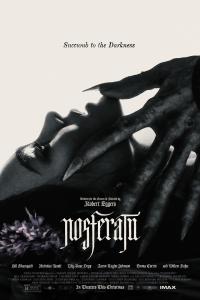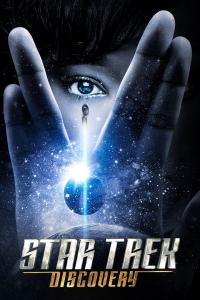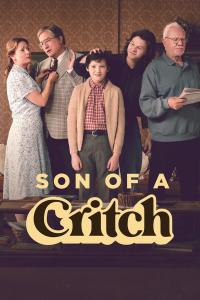Torrent details for "Brahms - The Symphonies Nos. 1-4 - BSO, Andris Nelsons (2016) [FLAC]" Log in to bookmark
Controls:
Language:
 English
EnglishTotal Size:
694.88 MB
Info Hash:
7aa80ea4351f60f730fd2b8e05a4876b05d3c357
Added By:
Added:
11-02-2023 22:24
Views:
226
Health:

Seeds:
1
Leechers:
0
Completed:
3
Name
DL
Uploader
Size
S/L
Added

Artist: Boston Symphony Orchestra, Andris Nelsons, Johannes Brahms
Title: Brahms: The Symphonies
Year Of Release: 2017
Label: BSO Classics
Genre: Classical
Quality: flac lossless + booklet
Total Time: 02:48:39
Total Size: 690 mb
Tracklist
CD1
01. Symphony No. 1 in C Minor, Op. 68: I. Un poco sostenuto-Allegro
02. Symphony No. 1 in C Minor, Op. 68: II. Andante sostenuto
03. Symphony No. 1 in C Minor, Op. 68: III. Un poco allegretto e grazioso
04. Symphony No. 1 in C Minor, Op. 68: IV. Adagio-Più Andante-Allegro non troppo ma con brio-Più Allegro
CD2
01. Symphony No. 2 in D Major, Op. 73: I. Allegro non troppo
02. Symphony No. 2 in D Major, Op. 73: II. Adagio non troppo
03. Symphony No. 2 in D Major, Op. 73: III. Allegretto grazioso (quasi andantino)
04. Symphony No. 2 in D Major, Op. 73: IV. Allegro con spirito
05. Symphony No. 3 in F Major, Op. 90: I. Allegro con brio
06. Symphony No. 3 in F Major, Op. 90: II. Andante
07. Symphony No. 3 in F Major, Op. 90: III. Poco Allegretto
08. Symphony No. 3 in F Major, Op. 90: IV. Allegro-Un poco sostenuto
CD3
01. Symphony No. 4 in E Minor, Op. 98: I. Allegro non troppo
02. Symphony No. 4 in E Minor, Op. 98: II. Andante moderato
03. Symphony No. 4 in E Minor, Op. 98: III. Allegro giocoso
04. Symphony No. 4 in E Minor, Op. 98: IV. Allegro energico e passionato
Boston, Massachusetts, is the leading city in the group of six northeastern United States known collectively as New England. It is one of the oldest cities in North America and a leading seaport. The original European settlers of the area the Pilgrims (Nonconformists, who arrived in 1620) and the Puritans brought a tradition of unaccompanied religious singing. Instrumental concerts can be dated back only to 1731. Orchestras were sometimes gotten together to play in oratorios and other special occasions. Gottlieb Graupner, formerly an oboist in Haydn's London orchestra, arrived in 1797 and was frequently conducting concerts. In 1809 he founded a Philo-Harmonic Society, which gave concerts, sometimes of orchestral music. A succession of other amateur societies presented symphonic music through most of the 1800s. A banker, Henry Lee Higginson, founded the Boston Symphony Orchestra in 1881. His purpose was to establish a full-time orchestra striving for the best quality in performance. He hired Georg Henschel as its first conductor. The core of the orchestra was German-born musicians. They gave their first concert on October 22, 1881. The first season was 22 pairs of concerts. The BSO's original home was the Music Hall, built in 1852 and now known as the Aquarius Theater. The next several music directors of the orchestra were Wilhelm Gericke (1884), Arthur Nikisch (1889), Emil Paur (1893), and Gericke again (1898). Under Gericke the BSO moved into its acoustically excellent home, Symphony Hall, which opened on October 19, 1900. Carl Muck assumed leadership in 1906. He was away for three years (1908-1912) when Max Fiedler filled in on the podium, then returned, only to lose his position in a scandal caused by his supporting his native Germany when he found that nation at war with America in 1917. Higginson, now 84, who had supported Muck, resigned at the same time and established a board of trustees to manage the orchestra. At that point the orchestra took a decisive turn toward French music. Henri Rabaud was engaged for one season in 1918, and then was succeeded by the brilliant young Pierre Monteux. The dynamic Russian conductor Serge Koussevitzky led from 1924 to 1949 and made the orchestra not only one of the most excellent ones in the world, but established a tradition of interest in the most recent music. For the orchestra's anniversary season in 1931 he planned a commissioning series that yielded an outstanding selection of new symphonic compositions, including Stravinsky's "Symphony of Psalms." Meanwhile, in 1885 the orchestra had established a series of "Promenade Concerts" for a reduced orchestra. In 1900, these concerts were known as the "Pops." They became a solid institution after 1930 when Max Fiedler's son, Arthur, became their conductor, remaining for decades, and are the prototype of all American-style Pops series. After Koussevitsky the orchestra has retained a tradition of podium stability: Its subsequent music directors have been Charles Munch (1949), Erich Leinsdorf (1963), William Steinberg (1968) and Seiji Ozawa (1973). It is a full-time orchestra of 110 members. It is the resident orchestra of the famous Berkshire Music Center at Tanglewood, western Massachusetts, which is the orchestra's summer program and a major seasonal teaching center for accomplished young musicians. The orchestra has an extensive discography. For years it was an exclusive act for RCA Victor records, and continues to be active as a recording orchestra on various labels.
Previously uploaded at Demonoid.











































